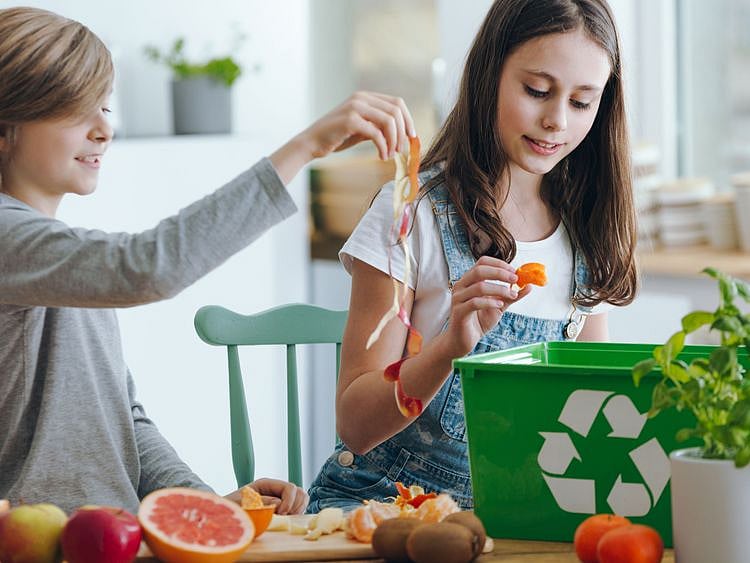UAE: Do you segregate waste at home?
There is no excuse for not doing it, says expert ahead of World Environment Day on June 5

Dubai: Are you one of those who uses just one bin in your kitchen that takes in all that you have to dump? Food waste, used plastic bowls, empty glass bottles, unwanted paper, old batteries - basically anything and everything that you want to get rid of?
Well, if your answer is yes, you are not alone.
While residents guilty of the practice would like to remain anonymous, there are many reasons they cite to justify what they do.
We don’t have separate bins for recyclables and non-recyclables at home. Even if we did, where would we keep them? Our building has only one garbage chute, so what’s the point in our segregating waste at home? And so on and so forth.
But as an expert enlightens us ahead of World Environment Day on June 5, there can no longer be any excuse for us not to segregate waste at source.
“Segregation at source is vital for a sustainable and proper waste management. Not only does the process help protect the environment, but it can also lead to greater efficiency, reduced expenditure, increased safety and better health,” says John Grainger, Chief Operating Officer, Dulsco Environment.
Two-bin system
“One of the simplest ways people can help is by adopting a two-bin system. Dual bins can be used at home, office or at school, making segregation at source even easier. Many community management companies in the UAE already provide recycling bins for each home or within buildings,” he says.
A good example is Dubai Municipality’s door-to-door source segregation project, My City My Environment (MCME), where residents are given a black bin to collect general waste and a green bin to collect mixed recyclables.
Across the UAE Ministry of Climate Change and Environment, the per capita municipal solid waste generation in the country reached about 2.1 kg/day, before falling to around 1.8 kg/day, one of the highest in the world, he notes.
“Items that should be placed in the recycling bin include paper, cardboard, plastic and aluminium cans. If they are put in the general waste bin instead, they end up in a landfill leading to the emission of greenhouse gases causing harm to the environment,” Grainger says.
“Other items can cause danger and damage, too. Out-of-date or unused medicine should be returned to pharmacies for disposal, although the cardboard box should go in the recycling bin. Meanwhile, old batteries shouldn’t be put in general waste or recycling bins, as they can explode and cause a fire during transportation or at landfill sites. Instead, they should be taken to hazardous waste collection points,” he adds.
Why segregate waste at source?
According to Dubai Municipality, source segregation or separating waste at home or at the office has proven to be effective in increasing recycling rates and waste diversion from landfill. The separation of materials at the point of collection results in a more homogenous waste stream, says the civic body. Source segregated material streams, which are less contaminated by other materials, are easier and less costly for recycling facilities to process and recover. They represent a higher value for recycling markets. Source segregation significantly imporves the environmental performance and economic efficiencies of waste management, including storage, transportation and treatment options.
According to him, it’s also vital that people take their rubbish home, or place it in a bin, when leaving public areas such as beaches. Plastic in the ocean is a danger to marine life and, humans. “Fish that eat plastic and other waste may end up on our dinner plates, which means we are potentially consuming plastic, too. Food for thought, for sure,” he notes.
Proper segregation also reduces costs to communities, because less waste goes to landfill. Dubai Municipality currently charges Dh100 per tonne for all landfill waste created by commercial establishments, factories, private and public institutions and residential communities that are served by waste collection companies. These fees can affect a business’s bottom line and residential community service charges. On the other hand, proper segregation at source enhances the Material Recovery Facility process, reducing contamination and promoting environmental health, adds Grainger.
Sign up for the Daily Briefing
Get the latest news and updates straight to your inbox
Network Links
GN StoreDownload our app
© Al Nisr Publishing LLC 2026. All rights reserved.